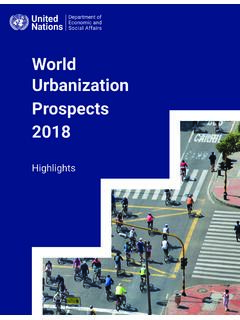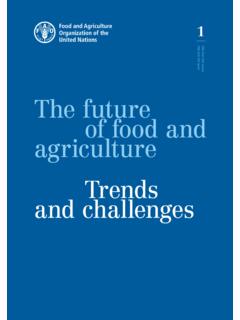Transcription of Charles Murray and the Underclass: The Developing Debate
1 The IEA Health and Welfare Unit Choice in Welfare Charles Murray and the Underclass: The Developing Debate Charles Murray commentaries Ruth Lister (Editor). Frank Field MP. Joan C. Brown Alan Walker Nicholas Deakin Pete Alcock Miriam David Melanie Phillips Sue Slipman A Statistical Update by Alan Buckingham IEA Health and Welfare Unit in association with The Sunday Times London, 1996. First published November 1996. Third Impression, June 1999. The IEA Health and Welfare Unit 2 Lord North St London SW1P 3LB. Material by Charles Murray Charles Murray Commentaries and other material The IEA Health and Welfare Unit 1996. All rights reserved ISBN 0-255 36391-5. ISSN 1362-9565. Typeset by the IEA Health and Welfare Unit in New Century Schoolbook 10 on 11 point Printed in Great Britain by Hartington Fine Arts Ltd, Lancing, West Sussex iii Contents Page Foreword v The Authors vi INTRODUCTION: In Search of the Underclass'.
2 Ruth Lister (Editor) 1. Part 1: The Emerging British Underclass Foreword: The Emerging British Underclass David G. Green 19. The Emerging British Underclass Charles Murray 23. Figures 1 Births to Single Women as a Percentage of All Births 53. 2 Crimes of Violence per 100,000 Population 53. Commentaries Britain's Underclass: Countering the Growth Frank Field 57. The Focus on Single Mothers Joan C. Brown 61. Blaming the Victims Alan Walker 66. Mister Murray 's Ark Nicholas Deakin 75. Rejoinder Charles Murray 81. Part 2: Underclass: The Crisis Deepens Foreword: Underclass: The Crisis Deepens David G. Green 97. Underclass: The Crisis Deepens Charles Murray 99. Figures 1 Percentage of Children Born to Unmarried Women 1540-1991 128.
3 2 Divorces, 1961-1991 128. 3 Percentages of Children Born out of Wedlock and Social Class, 1991 129. iv Charles Murray AND THE UNDERCLASS. 4 Illegitimacy Ratio 1974-1991 130. 5 Scenario I: A Brave New World 131. 6 Scenario II: The New Victorians and the New Rabble 131. Commentaries Back to the Future: Victorian Values for the 21st Century Pete Alcock 139. Fundamentally Flawed Miriam David 150. Where Are the New Victorians? Melanie Phillips 156. Would You Take One Home With You? Sue Slipman 161. A STATISTICAL UPDATE. Alan Buckingham 166. Tables 1 How Over- or Under-represented Illegitimate Births are by Social Class 175. 2a Response to the Statement I would pack in a job I didn't like even if there was no job to go to' 175.
4 2b Response to the Statement Almost any job is better than none' 175. 3 Comparing the Birth Status of the Child by the Mean General Ability Score of the Mother 175. Figures 1 Numbers of One-parent Families, Great Britain 176. 2 Live Births Outside Marriage 176. 3 Illegitimacy Ratio by Local Authority Area 177. 4 Illegitimacy Ratio by Social Class 178. Foreword This publication brings together Charles Murray 's two major essays on the British Underclass. Part 1 reproduces The Emerging British Underclass originally published by the IEA in 1990 following its earlier appearance in the Sunday Times Magazine. The comment- aries by Frank Field, Joan C. Brown, Alan Walker and Nicholas Deakin are also reprinted. Part 2 reprints Charles Murray 's follow-up essay, Underclass: The Crisis Deepens which was first published in September 1994.
5 Following its appearance in The Sunday Times in May of that year. Four commentaries by Pete Alcock, Miriam David, Melanie Phillips and Sue Slipman are also reproduced. This edition benefits from a new introduction by Professor Ruth Lister and a statistical update by Alan Buckingham. David G. Green v The Authors Charles Murray is the author of Losing Ground: American Social Policy 1950-1980, 1984; In Pursuit of Happiness and Good Government, 1988; The Emerging British Underclass, 1990; and, with Richard Herrnstein, The Bell Curve: Intelligence and Class Structure in American Life, 1994. He is the Bradley Fellow at the American Enterprise Institute, a public policy research institute in Washington, DC. Pete Alcock is Professor of Social Policy at Sheffield Hallam University.
6 He has written widely in the area of poverty, social security and anti-poverty policy and is the author of Understanding Poverty and Social Poverty in Britain. His major research interests are in the field of local anti-poverty action and welfare rights. Professor Alcock is currently the Chair of the Social Policy Association, and he is a member of the Editorial Boards of Journal of Social Policy and Benefits. Joan C. Brown is an independent researcher in social policy and was formerly employed as a Senior Research Fellow at the Policy Studies Institute. Her principal interests are social security and poverty, both in the UK and in the European Community. Earlier in her career she worked in Australia and Canada and she retains an interest in developments in these countries.
7 While at the Policy Studies Institute, Joan Brown had a series of studies published on issues of family income support, disability income and occupational benefits. Since 1988, her published studies have included: In Search of a Policy: the Rationale for Social Security Provision for One-Parent Families, 1988; Child Benefit: Investing in the Future, 1988; a study for the Social Security Advisory Committee entitled Why Don't They Go to Work? Mothers on Benefit, 1989; and Victims or Villains? Social Security Benefits in Unemployment, 1990. Alan Buckingham was born in 1969. The son of a factory worker, his formative years were spent living on a council housing estate in close proximity to members of the underclass'. He gained a first-class honours degree in Sociology at the University of Sussex in 1994 and is now completing his PhD.
8 Under the supervision of Professor Peter Saunders. His research, utilising a study of 17,000 men and women, is examining how and why people become part of the underclass. AUTHORS vii Miriam David is Professor of Social Sciences at South Bank University, Director of the Social Sciences Research Centre and also Head of Research and Vice Chair of the University's Research Committee. She is also visiting Professorial Fellow at the University of London Institute of Education. Her books include Parents, Gender and Educational Reform, Polity Press, 1993 and with Drs Rosalind Edwards, Mary Hughes and Jane Ribbens, Mothers and Education: Inside Out?, Macmillan, 1993. She is also currently the co-editor, with Dr Dulcie Groves, of the Journal of Social Policy, published by Cambridge University Press.
9 Nicholas Deakin has been Professor of Social Policy and Administration at Birmingham University since 1980. Previously he worked as a civil servant and then on a research programme in race relations funded by the Nuffield Foundation. After spending three years in the late 1960s researching and teaching at Sussex University, he went back to work in government, where he served as Head of the Central Policy Unit at the GLC. Professor Deakin has published numerous books and articles on race relations, urban policy, new towns and voluntary action. His most recent publications are The Politics of Welfare, 1994 and Consuming Public Services, (with Wright and others) 1990, and The Enterprise Culture and the Inner Cities, (with John Edwards), 1992.
10 He chaired the Independent Inquiry on the Voluntary Sector in England which reported in 1996. Frank Field has been the Labour Member of Parliament for Birkenhead since 1979. He has been a front-bench spokesman on education and social security, chairman of the Commons Social Services Select Committee and is currently the chairman of the Social Security Select Committee. Recent publications include: Losing Out: the Emergence of Britain's Underclass, and An Agenda for Britain. Other Institute of Community Studies publications allied to How To Pay For the Future are: Field, F., Making Welfare Work, 1995 (out of print); Field, F., Halligan, L. and Owen, M., Europe Isn't Working, 1994; and Field, F. and Owen, M., Beyond Punishment: Hard Choices on the Road to Full Employability, 1994.




